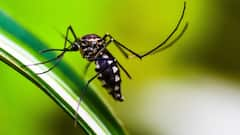Explorer
Uterine Cancer Awareness: Key Prevention And Detection Tips
Uterine cancer or the cancer of the womb, is the sixth most common cancer among the women globally. When the cancer arises in the lining of the uterine cavity, it is called endometrial cancer.

Uterine Cancer Awareness
1/6

1. Awareness is key: Being aware of the risk factors and symptoms helps women get detected early, thereby improving survival. Obesity, polycystic disease of the ovary (PCOS), and diabetes are some of the risk factors that can be controlled, while others like advancing age, genetic predisposition (Lynch syndrome), and prior exposure to tamoxifen (a drug used for breast cancer treatment) cannot be modified. Awareness aids in the implementation of prevention strategies and enhances informed decision-making. (Image source: Canva)
2/6

2. Screening in High-Risk Populations and Preventive Strategies: Routine screening of the general population is not advised. If there is a family history of EC or colon cancer, or if one is diagnosed below 50 years of age, then the possibility of Lynch syndrome (LS) should be kept in mind. LS is a genetic disorder associated with higher chances of endometrial, ovarian, and colon cancer. Prophylactic hysterectomy and removal of tubes and ovaries after the completion of childbearing is the most cost-effective strategy. Strict surveillance with regular colonoscopies helps in the early detection of colon cancer. Aspirin and oral contraceptive pills mitigate the risk of developing EC in certain cases. (Image source: Canva)
Published at : 10 Jun 2024 07:21 PM (IST)
View More






























































